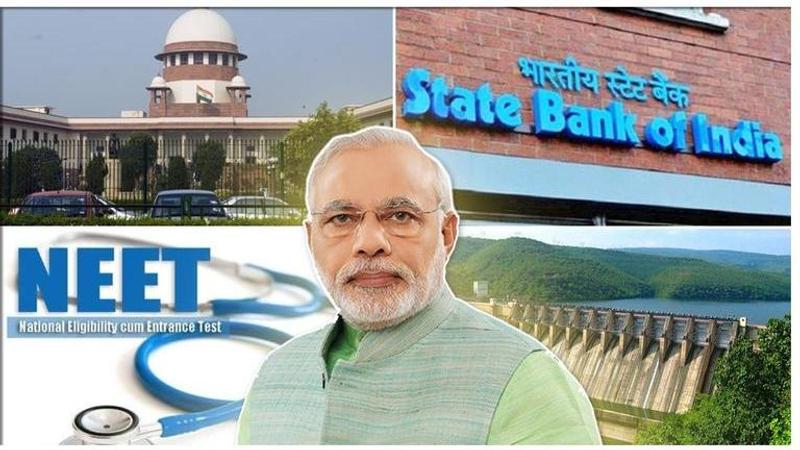Published 16:32 IST, July 17th 2019
Modi Cabinet 2.0 approves major bills affecting hydropower projects, obsolete laws, medical exams and bankruptcy. Read details here
Addressing a press conference, Union Minister Prakash Javadekar announced the Modi Cabinet's major decisions taken on Wednesday at the Cabinet meeting chaired by PM Modi.

Addressing a press conference, Union Minister Prakash Javadekar announced the Modi Cabinet's major decisions taken on Wednesday at the Cabinet meeting chaired by PM Modi.
Dibang Multipurpose Project Approval:
With India's aim of touching 175 GW of clean energy capacity by 2022 through renewable resources, Modi cabinet approved India's biggest hydropower project in Arunachal Pradesh with an installed capacity of 2880 MW.
According to National Hydro Power Company (NHPC), the Dibang Multipurpose Project is a hydropower cum flood moderation scheme proposed on Dibang River in Lower Dibang Valley District of Arunachal Pradesh with an installed capacity in 2880 MW. The Dam site is located about 1.5 km upstream of the confluence of Ashu Pani and Dibang rivers and about 43 km from Roing, District Headquarter and will help in moderating floods in the areas downstream of the Dibang Dam during monsoon to the extent of 3000 cumecs.
Unified Medical exams - NEET:
With an aim to ease medical college admissions aiding the National Medical Commission, the Cabinet has announced that there will only be NEET exam instead of different medical entrance exams.
The National Eligibility cum Entrance Test is an entrance examination in India for students wishing to pursue undergraduate and postgraduates medical courses and dental courses in government or private medical colleges and dental colleges in India.
Cabinet approves major Bills:
1. Repealing and Amending Bill (2019)
Keeping in line with the Law MInistry's aim to repeal obsolete laws with priority, the Cabinet has approved the repealing of 58 obsolete laws. The introduction of the Repealing and Amending Bill, 2019 in Parliament has also been approved.
Previously, the Narendra Modi government had introduced the Repealing and Amending Act, 2017 that repealed 104 Acts, and also partially repealed three sections of the Taxation Laws (Amendment) Act, 2007 along with minor amendments to three other Acts to correct typographical errors. This act was the fourth repealing act tabled by the Narendra Modi administration aimed at repealing obsolete laws.
2. Insolvency and Bankruptcy Code (Amendment) Bill (2019)
In continuation of finetuning the Insolvency and Bankruptcy Code (2016), the Cabinet has approved the Insolvency and Bankruptcy Code (Amendment) Bill 2019.
Previously, the government had amended the Code in 2018, to clarify that allottees under a real estate project should be treated as financial creditors. It had also reduced the threshold for routine decisions taken by the committee of creditors and allowed the withdrawal of a resolution application submitted to the NCLT under the Code.
3. Dam Safety Bill (2019)
After the introduction of the Dam Safety Bill 2018 in December 2018, the Cabinet has approved the proposal for enactment of the Dam Safety Bill, 2019.
The Bill introduced by Union Water Resources Minister Nitin Gadkari in December 2018, provides for the surveillance, inspection, operation, and maintenance of specified dams across the country. The Bill also provides for the institutional mechanism to ensure the safety of such dams.
Updated 16:46 IST, July 17th 2019




